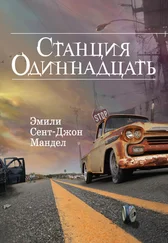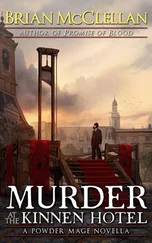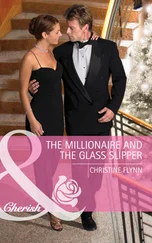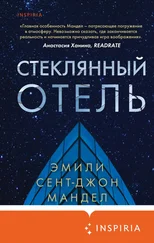—
Sometime in 2003, he arrived at lunch without a wedding ring. He’d been married to Suzanne for a long time, decades, but Olivia had never met her. Although, when had she last seen him? Over a year had passed since their last lunch, she realized.
“You’re not wearing a ring,” she said.
“Oh. Yes.” He was quiet for a moment. “I decided it was finally time to take it off.” There was something in his tone, in the way he looked at his ringless hand, and she understood that Suzanne was dead.
“I’m sorry,” she said.
“Thank you.” A small, pained smile, and he turned his attention to the menu. “Forgive me, but it’s still difficult to talk about. Have you tried the halibut at this place?”
—
Three months before Jonathan Alkaitis was arrested, he invited her along on a trip on his yacht. This was September of 2008. They were sailing from New York to Charleston. It was her first time meeting Jonathan’s second wife, Vincent, who turned out to be an elegant and friendly person with a talent for mixing cocktails.
“She’s delightful,” Olivia said to Jonathan, when they were alone on deck after dinner. Vincent had gone in to make drinks. The sunset was fading.
“Isn’t she? I’m very happy.”
“Where did you find her?”
“A hotel bar in British Columbia,” he said. “She was the bartender.”
“I suppose that explains why she’s so good at mixed drinks.”
“I think she’d be good at anything she set out to do.”
Olivia wasn’t sure what to say to this, so she only nodded, and for a moment they just listened to the waves and the engines. They were passing alongside a quiet part of North Carolina, only a few scattered lights on the shore.
“What a fortunate thing,” Olivia said finally, “being good at everything.” She herself had only ever been good at one thing, and possibly not even that. Few sales had followed Lucas with Shadows. No one seemed interested in any of the work she’d done after the fifties, and the truth was that she hadn’t painted in a long time. Painting was something that had grabbed hold of her for a while, decades, but now it had let go and she had no further interest in it, or it had no further interest in her. All things end, she’d told herself, there was always going to be a last painting, but if she wasn’t a painter, what was she? It was a troubling question.
“I walked into the bar and saw her,” Alkaitis said, “and I thought, She’s very pretty. ”
“She’s gorgeous.”
“Then I found I enjoyed talking with her, and I thought, Why not? You know, if you don’t have to be alone, then maybe you shouldn’t be.”
Olivia, who was almost always alone, couldn’t think of anything to say to this.
“It’s interesting,” he said, “she’s got a very particular kind of gift.”
“What’s that?”
“She sees what a given situation requires, and she adapts herself accordingly.”
“So she’s an actress?” The conversation was beginning to make Olivia a little uneasy. It seemed to her that Jonathan was describing a woman who’d dissolved into his life and become what he wanted. A disappearing act, essentially.
“Not acting, exactly. More like a kind of pragmatism, driven by willpower. She decided to be a certain kind of person, and she achieved it.”
“Interesting,” Olivia said, to be polite, although she couldn’t actually think of anything less interesting than a chameleon. Vincent was lovely but not, Olivia had decided, a serious person. Since her late teens she had been mentally dividing people into categories: either you’re a serious person, she’d long ago decided, or you’re not. A difficulty of her current life was that she was no longer sure which category she fell into. Vincent was returning now with another round of cocktails. The lights of the Carolinas slipped past on the shore.
2009
No star burns forever. Words scratched into the wall by Alkaitis’s bunk, etched so delicately and in such a spidery fashion that from any distance at all they look like a smudge or a crack in the paint, at exactly the right spot so he sees them when he turns his face to the wall. He’s never had much interest in earth science but of course he knows the sun is a star, everyone knows that, so is the point just that the world will eventually end, in which case, why not just write that? Alkaitis has limited patience for poetry.
“Oh, that was Roberts,” his cellmate tells him. “Guy here before you.” Hazelton is doing ten to fifteen for grand larceny. He talks too much. He is nervous and twitchy but seems to mean well. He’s exactly half Alkaitis’s age and likes to talk about how he still has his whole life ahead of him, when he gets out of here it’s all going to be different, etc. Roberts has come up in conversation before. “Got transferred to the hospital,” Hazelton says. “He had some kind of heart thing.”
“What was he like?”
“Roberts? Old guy, maybe sixty. Sorry. No offense.”
“None taken.” Time moves differently in prison than in Manhattan or in the Connecticut suburbs. In prison, sixty is old.
“Reasonable guy, never had problems with anybody. We called him Professor. He wore glasses. He was always reading books.”
“What kind of books?”
“The kind with Martian chicks and exploding planets on the cover.”
“I see.” Alkaitis tries to picture life as it was lived in this room before him: Roberts reading sci-fi, serious and bespectacled, disappearing into stories about alien planets while Hazelton chattered and cracked his knuckles and paced. “Why was he here?”
“He didn’t want to talk about it. Actually, he didn’t talk about anything. Real quiet guy, just sat there staring into space a lot.”
This summons an unexpected memory of his mother. For three years after Lucas died, Alkaitis used to come home from school sometimes and find his mother sitting perfectly still in the living room, staring at nothing, like she was watching a film only she could see.
“Was he depressed?” Alkaitis asks.
“Bro, it’s prison. Everyone’s depressed.”
—
Is Alkaitis depressed? Sure, in a manner of speaking, but his life here isn’t as bad as he thought it would be, once the initial shock wears off. He was arrested in December 2008 and six months later he arrived in his new home outside the town of Florence, South Carolina, a medium-security federal correctional institute known officially as FCI Florence Medium 1, not to be confused with FCI Florence Medium 2, which is technically the same security level but considerably harsher. Medium 1 is for the shrinking violets, as Tait memorably put it. Tait is doing a fifty-year bid for child pornography and as such would probably get killed in his first week in any other prison. Medium 1 is for prisoners who are thought to be too vulnerable for the general population: child molesters, dirty cops, the medically compromised, celebrities, fragile bespectacled hackers, and spies. There’s a maximum-security prison in the same complex, also a hospital. The hospital scares Alkaitis, because it’s the place where old men disappear.
—
He thinks of Roberts sometimes when he steps out into the yard. What’s striking about the yard is its terminal blandness. Green grass crisscrossed with cement pathways, the pathways designed for inmates to walk as efficiently as possible between buildings during periods of movement. There’s a separate recreation yard with a jogging track, its aesthetics equally impoverished. Everyone is dressed in khaki and gray, except the guards, who wear navy blue and black. The buildings are beige with blue accents. Outside the fence, there’s a distant tree line, all of the trees the exact same shade as the grass. There just aren’t enough colors here, that’s his first impression. It’s incomprehensible that this place exists in the same world as, say, Manhattan, so when he’s crossing the yard he sometimes pretends he’s on an alien planet.
Читать дальше












